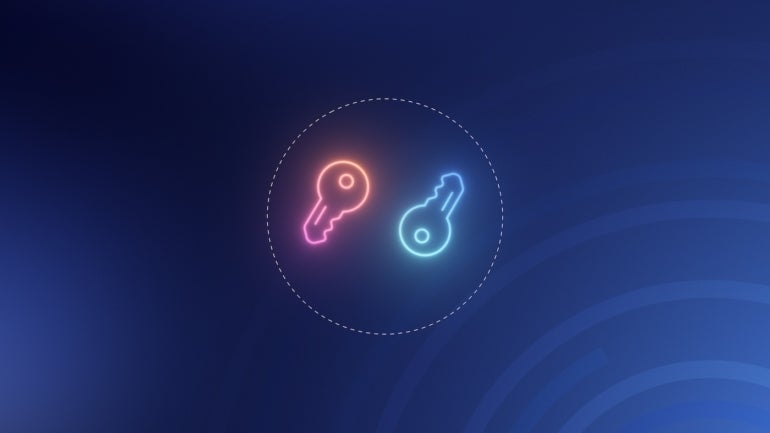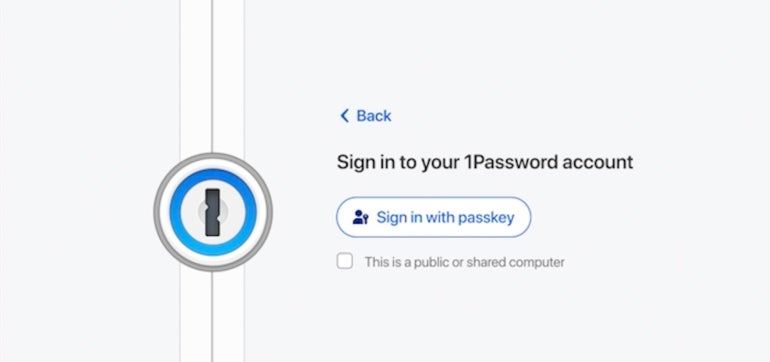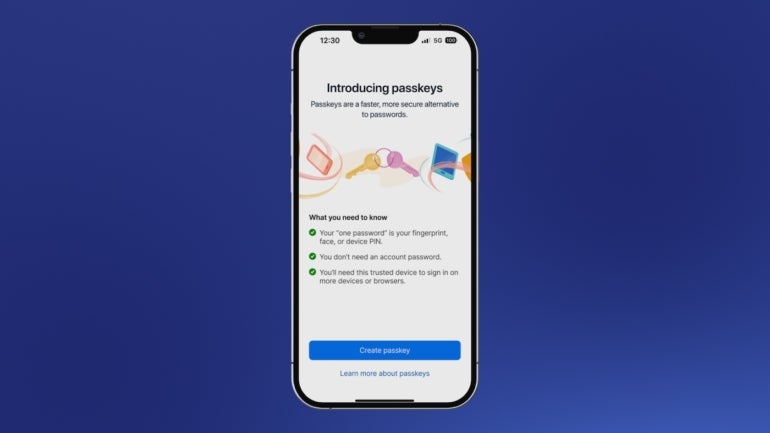
Identity management company 1Password is spinning up a pair of new features that constitute a major shift away from passwords and toward their low-friction replacement: passkeys.
On June 6, 1Password will take a big step away from passwords by allowing customers to save and sign into online accounts with passkeys via the 1Password browser extension. The extension puts 1Password instances in the log-in fields. It allows users both which enables customers to use vault-linked biometrics to sign into accounts.
In July 2023, the company will go further, releasing a beta that lets users sign into their 1Password vaults with a public/private encrypted passkey.
Jump to:
The evolution of identity management away from methods requiring memory, lists and, yes, password managers, got help last month from Apple and Google, which have paved the way with multi-device passkey sign-in capabilities. According to the industry standards group, the FIDO Alliance companies — including PayPal, Yahoo! Japan, CVS Health and Shopify — are providing their customers with passkey sign-ins.
SEE: Too many passwords, logins, accounts causing security, transaction problems (TechRepublic)
“Our mission is to help people safeguard their digital identities and by doubling down on passkeys, we’re providing users with both greater security and ease of use,” said Steve Won, the chief product officer of 1Password, in a statement. “Passkeys have reached a tipping point and people are beginning to navigate a hybrid state of authentication methods.”
According to 1Password, with the new system:
Figure A

According to research by 1Password, when consumers were shown an example of passkeys, 75% said they’d consider using them. Sixty-five percent of respondents to the April 2023 survey in which the study is based said they are open to technologies that make life simpler, and 75% stated they would consider using passkeys. Nineteen percent said they would start using passkeys as soon as they’re available.
For its part, the FIDO Alliance, of which 1Password is a board member, released this week a set of passkey user experience guidelines based on contributions from over 79 product, design, accessibility, marketing and technical leaders from 31 companies, including 1Password, Google, Trusona and U.S Bank.
“Since we first announced the concept of synced passkeys a year ago, we’ve seen remarkable market interest and significant early adoption as businesses around the world accelerate their efforts to eliminate the threat and hassle of passwords,” said Andrew Shikiar, the executive director of FIDO Alliance, in a statement.
The Alliance offered three principles for content framing the passkey user experience, recommendations informed by content the group tested on a group of U.S. participants using a Figma prototype and a live demo website:
Figure B

Shikiar recently told TechRepublic that companies like 1Password are very well positioned to make the transition to encrypted keys, in part because they inhabit an intermediate zone between individuals worried about their digital footprints (link) and losing control of personal data, including logins, to e-commerce platforms that are perpetual targets for data exfiltration.
“A lot of consumers use password managers because they live in a multi-platform world. Password managers give you independent cross-platform implementation and independent options,” he said. “For consumers, if they are comfortable using password managers today, they’ll be comfortable using them with passkeys.”
He said the FIDO Alliance’s goal is to create opportunities by working on ways to formalize a process so companies like 1Password, DashLane and LastPass will be able to manage passkeys and protect important user credentials.
“There are some 950 FIDO-certified products for the enterprise workforce and for consumers. The benefit of open standards and certification around that is it creates competition, with interoperable specifications. It has been interesting to watch the vendor ecosystem iterate and innovate and find ways to add value to customers while also competing with each other,” he said.
Shikiar does not see passwords vanishing soon, but rather coexisting with passkeys at least over the course of the next three to four years as every major consumer service online rolls out passwordless sign-in options.
“The next generation of digital natives? They may not even know passwords. It won’t be long before we look back on passwords as we do on dial-in modems,” he said.